Global Graduate Grants (G3)
CEHD International Initiatives offers funding up to $5,000 to one graduate student to support international research that demonstrates a commitment to global engagement.
- Graduate and/or professional degree seeking students
- Currently enrolled in a degree program in College of Education and Human Development
- In good academic standing
- Participating in an exemplary research project in an international location. The research project activities may include data collection, analysis, and/or dissemination of research in high-impact settings. The research project should contribute to the larger body of global research.
- Support research in a global context with potential for high impact contribution in a CEHD field of study.
- All materials should be single-spaced
- Cover letter (one page)
- Demonstrated qualifications to conduct the study in selected global setting
- Overall experience with or commitment to global engagement
- Potential benefits to career and academic development
- Research project proposal showing potential impact and contribution (1-2 page)
- Include research plan and timeline of activities abroad
- Alignment with at least one of the United Nations Sustainable Development Goals
- Ethical considerations and responsibilities of international research
- If data collection is planned, submit IRB approval number with proposal
- Budget showing costs to be covered by G3 (1 page)
- CV
- Two letters of support
- 1 letter from Faculty advisor on impact of student’s research
- 1 letter from another faculty or stakeholder that can speak towards your capacity for international research (letters from student peers are not acceptable)
- Applicants can submit additional letters of support from International partners
- Recipients will be expected to register for OLPD 5105 (Ethical Considerations in International Fieldwork), a 1-credit schedule B course related to the ethics of international fieldwork in the spring semester (day/time TDB).
- Recipients of the G3 research grant are required to report back on their research activity with a two-page accounting of expenses, work accomplished, estimated impact, and next steps (publication, presentation, etc.). Photos and other descriptive materials are strongly encouraged.
- Application due date
- Thursday, February 26, 2025.
- Application
- Application form
- Faculty advisor letter form on impact of student’s research,
- Additional faculty or stakeholder letter form
- (If applicable) International partner letter form
CEHD International Initiatives: cehdintl@umn.edu
G3 recipients
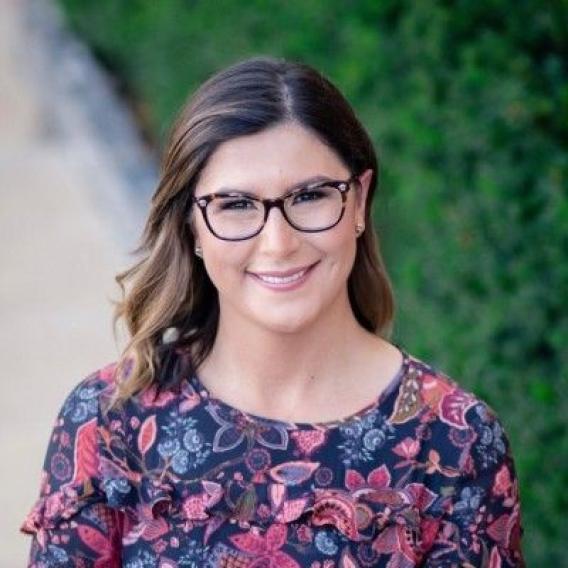
Erma Mujic (she/her)
PhD student at Department of Organizational Leadership, Policy, and Development
Program:
Comparative and International Development Education (CIDE)
Project:
Refugee Youths’ Education & Aspirations in Greece
Summary of work: This summer I spent 5 weeks in Greece conducting field work for my dissertation titled Refugee Youths’ Education and Aspirations in a Transitory Context in Greece. The field work structure was designed in consultation with local partners, refugee-serving nongovernmental organizations, in three locations across Greece. Data collection during this phase included language classroom and safe spaces observations and semi-structured interviews with eleven teachers and nineteen refugee youth (ages 15-30) from Afghanistan, Cameroon, Congo, El Salvador, Ethiopia, Ghana, Iran, Iraq, Kenya, Somalia, Syria and Ukraine. The research sites include:
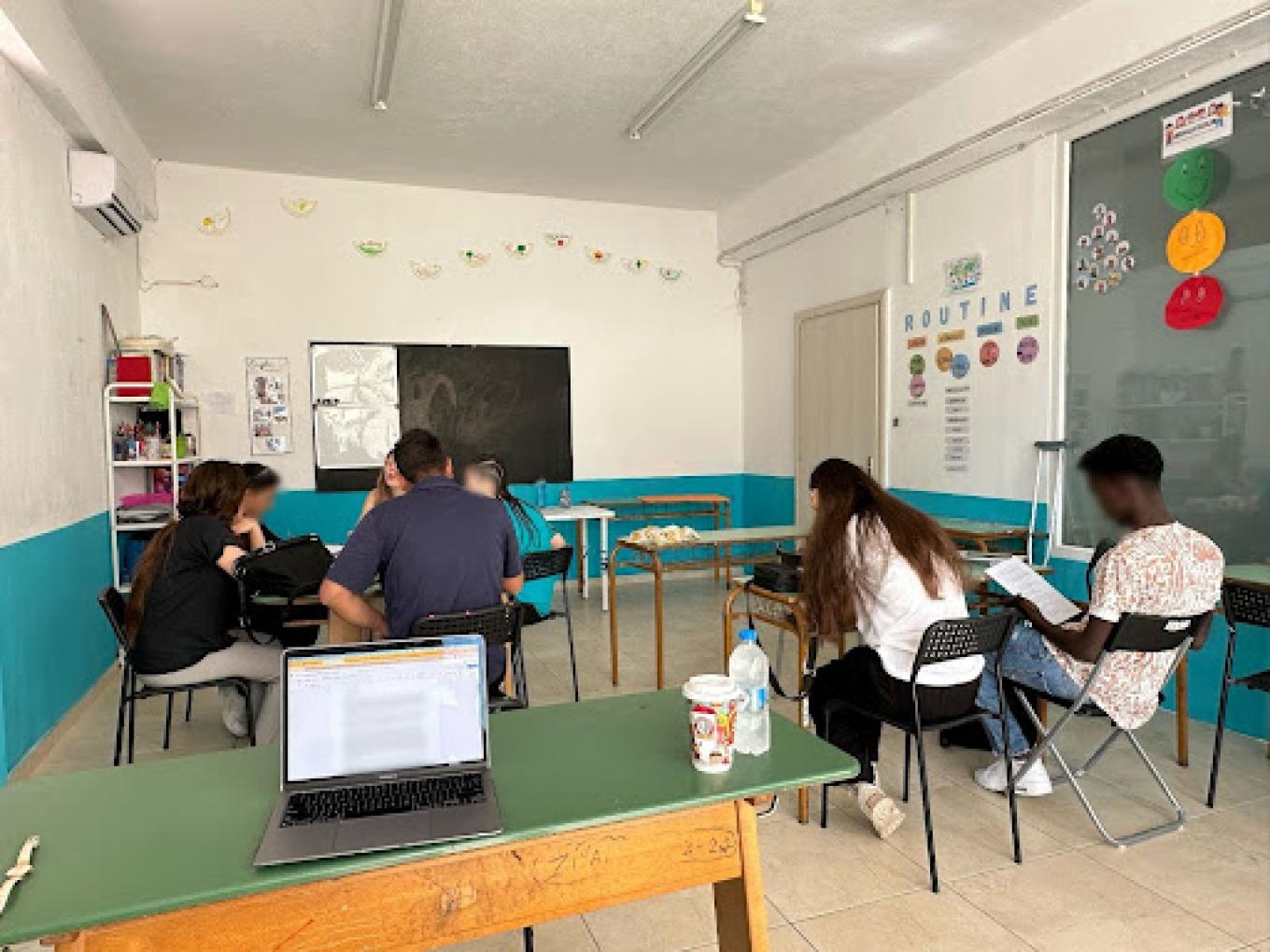
Observing language learning classroom for young adults in Polykastro, home of Nea Kavala Refugee Camp

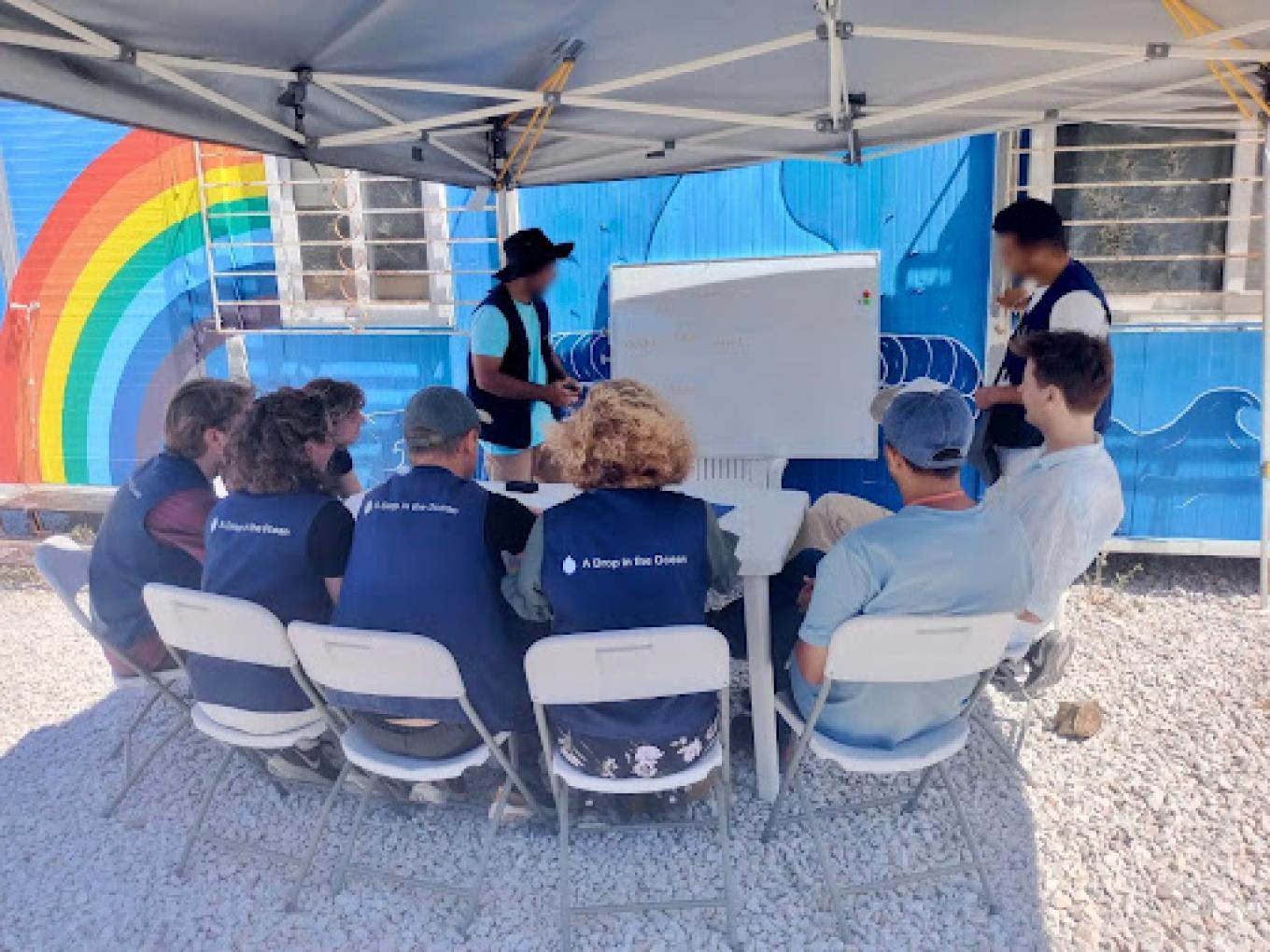
Observing a Farsi class for international volunteers, taught by refugees who are camp residents and volunteers for A Drop in the Ocean

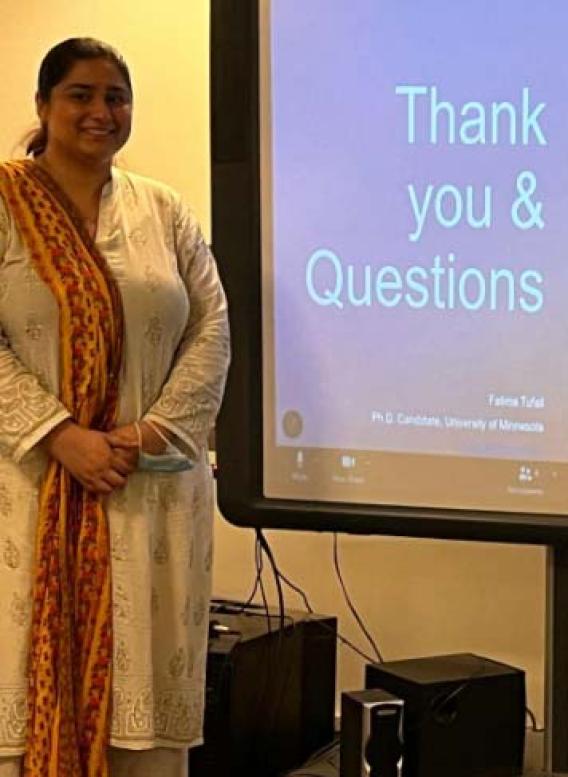
Fatima Bint Tufail (she/her)
PhD student at Comparative and International Development Education
Summary of Work:
In the summer and early fall of 2023, I was able to travel to Pakistan and meet with scholars and institutions to workshop my research findings with other students and scholars. Some of the highlights of my travel are:
- I was invited as a guest speaker to share my experiences with graduate students in a Qualitative Methods course at the Agha Khan University, Institute for Educational Development (AKU-IED) in Karachi, Pakistan. The graduate students and I had a thought-provoking discussion about how critical theories and epistemological commitments shape our research design and data collection/analysis process at every step of the way.
- I presented a chapter from my dissertation at the Human Development and Capability Association (HDCA) Conference in Sofia, Bulgaria. Based on my research, I argued for the need to put affect and emotions at the center of classroom pedagogies for more equitable learning processes.
- I attended a conference on Foundational Learning and Early Childhood Care & Education in Emergencies organized by UNICEF and School of Literacy Department Government of Sindh, Pakistan. I was able to connect with teachers, nonprofit professionals, and government officials working on education and learned how they are centering children’s psychosocial needs in everyday classroom pedagogies.
- I was able to revisit one of my research sites and hold follow-up discussions with teachers and principal. These ongoing discussions and relationship building are very insightful at the analysis and writing stage of my research.
- I connected and engaged with some faculty and staff at the Habib University, Karachi to discuss my research and possibilities for future projects and connections. I was also invited to participate in the visiting scholars’ program at the university.
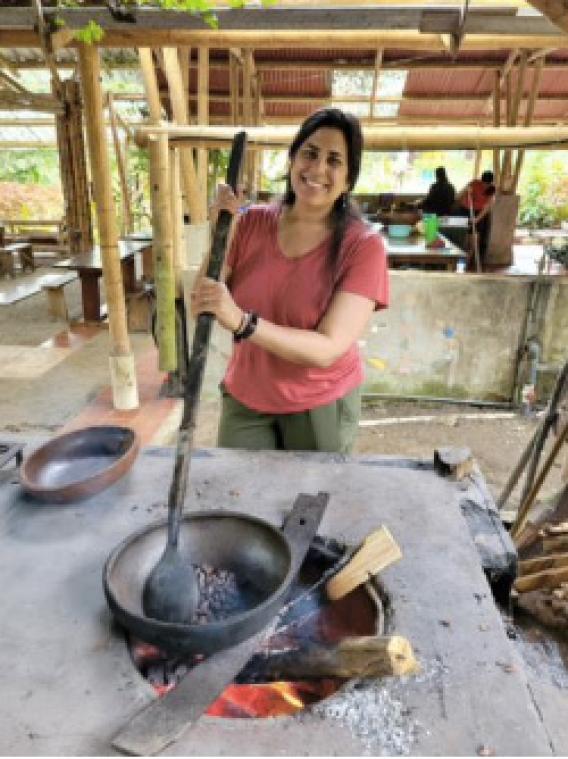
Neela Nandyal (she/her)
PhD student at Comparative and International Development Education
Summary of Work:
In July 2022, I traveled to Ecuador to conduct a pilot study on the attitudes, values, and practices shaping environmental education (EE) in the coastal province of Manabí, Ecuador.
Over the course of three and a half weeks, I traveled to three distinct areas of Manabí: the northern coast, which was most impacted by the 2016 earthquake, and is home to one of the most threatened forests in Ecuador; the central region, which is rich in both small scale and industrial agriculture, and includes the urban centers of Manta and Portoviejo, and the southern coast, which has an economy dependent on both fishing and tourism. I also spent a few days in Quito, which is the center of government policies for both education and the environment.
As part of this pilot study, I conducted 21 semi structured interviews with local educators, conservationists, and other residents.Interview questions addressed topics of environment,sustainability, ecotourism, livelihoods, EE, and climate change. Through coding and analysis of these interviews, I will work to identify the key attitudes, values, and practices shaping EE in coastal Ecuador, as well as explore avenues for future research and collaboration.